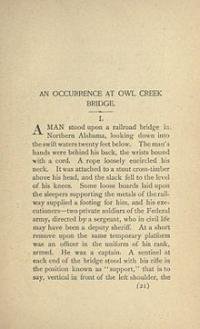Ambroz Birs - The Realm of the Unreal
Here you can read online Ambroz Birs - The Realm of the Unreal full text of the book (entire story) in english for free. Download pdf and epub, get meaning, cover and reviews about this ebook. genre: Prose. Description of the work, (preface) as well as reviews are available. Best literature library LitArk.com created for fans of good reading and offers a wide selection of genres:
Romance novel
Science fiction
Adventure
Detective
Science
History
Home and family
Prose
Art
Politics
Computer
Non-fiction
Religion
Business
Children
Humor
Choose a favorite category and find really read worthwhile books. Enjoy immersion in the world of imagination, feel the emotions of the characters or learn something new for yourself, make an fascinating discovery.

- Book:The Realm of the Unreal
- Author:
- Genre:
- Rating:4 / 5
- Favourites:Add to favourites
- Your mark:
- 80
- 1
- 2
- 3
- 4
- 5
The Realm of the Unreal: summary, description and annotation
We offer to read an annotation, description, summary or preface (depends on what the author of the book "The Realm of the Unreal" wrote himself). If you haven't found the necessary information about the book — write in the comments, we will try to find it.
The Realm of the Unreal — read online for free the complete book (whole text) full work
Below is the text of the book, divided by pages. System saving the place of the last page read, allows you to conveniently read the book "The Realm of the Unreal" online for free, without having to search again every time where you left off. Put a bookmark, and you can go to the page where you finished reading at any time.
Font size:
Interval:
Bookmark:
The Realm of the Unreal
by Ambrose Bierce
I
FOR a part of the distance between Auburn and Newcastle the roadfirst on one side of a creek and then on the otheroccupies the whole bottom of the ravine, being partly cut out of the steep hillside, and partly built up with bowlders removed from the creek-bed by the miners. The hills are wooded, the course of the ravine is sinuous. In a dark night careful driving is required in order not to go off into the water. The night that I have in memory was dark, the creek a torrent, swollen by a recent storm. I had driven up from Newcastle and was within about a mile of Auburn in the darkest and narrowest part of the ravine, looking intently ahead of my horse for the roadway. Suddenly I saw a man almost under the animal's nose, and reined in with a jerk that came near setting the creature upon its haunches.
"I beg your pardon," I said; "I did not see you, sir."
"You could hardly be expected to see me," the man replied, civilly, approaching the side of the vehicle; "and the noise of the creek prevented my hearing you."
I at once recognized the voice, although five years had passed since I had heard it. I was not particularly well pleased to hear it now.
"You are Dr. Dorrimore, I think," said I.
"Yes; and you are my good friend Mr. Manrich. I am more than glad to see youthe excess," he added, with a light laugh, "being due to the fact that I am going your way, and naturally expect an invitation to ride with you."
"Which I extend with all my heart."
That was not altogether true.
Dr. Dorrimore thanked me as he seated himself beside me, and I drove cautiously forward, as before. Doubtless it is fancy, but it seems to me now that the remaining distance was made in a chill fog; that I was uncomfortably cold; that the way was longer than ever before, and the town, when we reached it, cheerless, forbidding, and desolate. It must have been early in the evening, yet I do not recollect a light in any of the houses nor a living thing in the streets. Dorrimore explained at some length how he happened to be there, and where he had been during the years that had elapsed since I had seen him. I recall the fact of the narrative, but none of the facts narrated. He had been in foreign countries and had returnedthis is all that my memory retains, and this I already knew. As to myself I cannot remember that I spoke a word, though doubtless I did. Of one thing I am distinctly conscious: the man's presence at my side was strangely distasteful and disquieting so much so that when I at last pulled up under the lights of the Putnam House I experienced a sense of having escaped some spiritual peril of a nature peculiarly forbidding. This sense of relief was somewhat modified by the discovery that Dr. Dorrimore was living at the same hotel.
II
In partial explanation of my feelings regarding Dr. Dorrimore I will relate briefly the circumstances under which I had met him some years before. One evening a half-dozen men of whom I was one were sitting in the library of the Bohemian Club in San Francisco. The conversation had turned to the subject of sleight-of-hand and the feats of the prestidigitateurs, one of whom was then exhibiting at a local theatre.
"These fellows are pretenders in a double sense," said one of the party; "they can do nothing which it is worth one's while to be made a dupe by. The humblest wayside juggler in India could mystify them to the verge of lunacy."
"For example, how?" asked another, lighting a cigar.
"For example, by all their common and familiar performancesthrowing large objects into the air which never come down; causing plants to sprout, grow visibly and blossom, in bare ground chosen by spectators; putting a man into a wicker basket, piercing him through and through with a sword while he shrieks and bleeds, and then the basket being opened nothing is there; tossing the free end of a silken ladder into the air, mounting it and disappearing."
"Nonsense!" I said, rather uncivilly, I fear. "You surely do not believe such things?"
"Certainly not: I have seen them too often."
"But I do," said a journalist of considerable local fame as a picturesque reporter. "I have so frequently related them that nothing but observation could shake my conviction. Why, gentlemen, I have my own word for it."
Nobody laughedall were looking at something behind me. Turning in my seat I saw a man in evening dress who had just entered the room. He was exceedingly dark, almost swarthy, with a thin face, black-bearded to the lips, an abundance of coarse black hair in some disorder, a high nose and eyes that glittered with as soulless an expression as those of a cobra. One of the group rose and introduced him as Dr. Dorrimore, of Calcutta. As each of us was presented in turn he acknowledged the fact with a profound bow in the Oriental manner, but with nothing of Oriental gravity. His smile impressed me as cynical and a trifle contemptuous. His whole demeanor I can describe only as disagreeably engaging.
His presence led the conversation into other channels. He said littleI do not recall anything of what he did say. I thought his voice singularly rich and melodious, but it affected me in the same way as his eyes and smile. In a few minutes I rose to go. He also rose and put on his overcoat.
"Mr. Manrich," he said, "I am going your way."
"The devil you are!" I thought. "How do you know which way I am going?" Then I said, "I shall be pleased to have your company."
We left the building together. No cabs were in sight, the street cars had gone to bed, there was a full moon and the cool night air was delightful; we walked up the California street hill. I took that direction thinking he would naturally wish to take another, toward one of the hotels.
"You do not believe what is told of the Hindu jugglers," he said abruptly.
"How do you know that?" I asked.
Without replying he laid his hand lightly upon my arm and with the other pointed to the stone sidewalk directly in front. There, almost at our feet, lay the dead body of a man, the face upturned and white in the moonlight! A sword whose hilt sparkled with gems stood fixed and upright in the breast; a pool of blood had collected on the stones of the sidewalk.
I was startled and terrifiednot only by what I saw, but by the circumstances under which I saw it. Repeatedly during our ascent of the hill my eyes, I thought, had traversed the whole reach of that sidewalk, from street to street. How could they have been insensible to this dreadful object now so conspicuous in the white moonlight?
As my dazed faculties cleared I observed that the body was in evening dress; the overcoat thrown wide open revealed the dresscoat, the white tie, the broad expanse of shirt front pierced by the sword. Andhorrible revelation!the face, except for its pallor, was that of my companion! It was to the minutest detail of dress and feature Dr. Dorrimore himself. Bewildered and horrified, I turned to look for the living man. He was nowhere visible, and with an added terror I retired from the place, down the hill in the direction whence I had come. I had taken but a few strides when a strong grasp upon my shoulder arrested me. I came near crying out with terror: the dead man, the sword still fixed in his breast, stood beside me! Pulling out the sword with his disengaged hand, he flung it from him, the moonlight glinting upon the jewels of its hilt and the unsullied steel of its blade. It fell with a clang upon the sidewalk ahead andvanished! The man, swarthy as before, relaxed his grasp upon my shoulder and looked at me with the same cynical "regard that I had observed on first meeting him. The dead have not that lookit partly restored me, and turning my head backward, I saw the smooth white expanse of sidewalk, unbroken from street to street.
Font size:
Interval:
Bookmark:
Similar books «The Realm of the Unreal»
Look at similar books to The Realm of the Unreal. We have selected literature similar in name and meaning in the hope of providing readers with more options to find new, interesting, not yet read works.
Discussion, reviews of the book The Realm of the Unreal and just readers' own opinions. Leave your comments, write what you think about the work, its meaning or the main characters. Specify what exactly you liked and what you didn't like, and why you think so.


